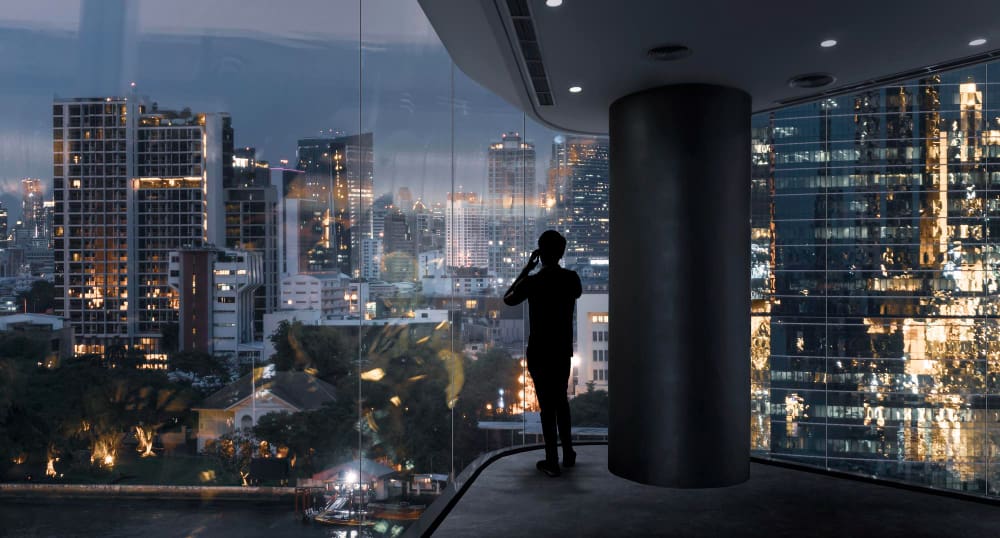In an age defined by the relentless flow of information, a small and exclusive club of billionaires wields unprecedented power over the global media landscape, shaping public discourse, influencing political outcomes, and defining cultural narratives. From legacy newspaper empires to disruptive digital platforms, moguls like Rupert Murdoch, Michael Bloomberg, and Jeff Bezos control the critical infrastructure through which billions of people consume news and form their worldview. This concentration of media ownership in the hands of the ultra-wealthy, a trend accelerating in the 21st century, raises fundamental questions about journalistic independence, the health of democracy, and who ultimately gets to write the first draft of history.
The Titans of Traditional Media
Long before the advent of social media, a generation of titans built formidable empires on the foundations of print and broadcast. Their influence remains deeply embedded in the political and cultural fabric of nations around the world, demonstrating the enduring power of traditional media outlets.
Rupert Murdoch & The News Corp Empire
Perhaps no single figure is more synonymous with media power than Rupert Murdoch. Over seven decades, the Australian-born magnate assembled a sprawling global empire under the banners of News Corp and Fox Corporation that has profoundly shaped conservative politics in three separate countries.
His portfolio includes some of the most influential mastheads and networks in the English-speaking world. In the United States, Fox News has become a dominant force in cable news, driving the conversation on the political right. In the United Kingdom, his tabloids like The Sun and legacy papers like The Times hold immense sway over public opinion, while in his native Australia, his company’s newspapers dominate the market.
Critics argue that Murdoch has often used his outlets to prop up political allies and attack opponents, blurring the line between news and activism. His papers were instrumental in championing Brexit in the UK and have provided a powerful platform for figures like President Donald Trump in the US. The recent succession, which saw his son Lachlan Murdoch take the helm, ensures the family’s influence will persist for another generation.
Michael Bloomberg & His Financial Data Kingdom
Michael Bloomberg’s power base is different but no less formidable. His empire is built not on mass-market tabloids but on the indispensable Bloomberg Terminal, the iconic dual-screen machine that is the lifeblood of global finance. This subscription-based service provides the real-time data, news, and analytics that traders and executives depend on, giving Bloomberg unparalleled access and influence within the world of business.
From this foundation, he built Bloomberg News, a global news agency with thousands of journalists. While it adheres to a strict, data-driven style of reporting, its sheer scale and its integration with the Terminal make it a primary source of information for the world’s most powerful decision-makers in finance and government.
Bloomberg has also demonstrated a willingness to directly leverage his media and financial power for political ends. His self-funded 2020 presidential campaign, though unsuccessful, was a stark illustration of how immense personal wealth, combined with a media platform, can allow an individual to bypass traditional political structures and speak directly to the electorate.
The New Guard: Tech Moguls Reshaping the Landscape
The digital revolution has minted a new class of billionaire, whose wealth and influence were born from code rather than print presses. As these tech moguls turn their attention and resources toward the media industry, they are fundamentally altering how news is produced, distributed, and consumed.
Jeff Bezos & The Washington Post
When Amazon founder Jeff Bezos purchased The Washington Post for $250 million in 2013, it sent shockwaves through the industry. The storied newspaper, famous for its Watergate reporting, was struggling financially in the digital age. Bezos’s acquisition was seen by some as a civic-minded rescue and by others as a strategic power play by one of the world’s richest men.
Under his ownership, The Post has undergone a remarkable digital transformation, investing heavily in technology and expanding its newsroom to become a truly global publication. Bezos has largely maintained a hands-off approach to editorial matters, creating a firewall between his business interests at Amazon and the paper’s journalism. However, his ownership inherently places one of the nation’s most important democratic institutions in the hands of a single individual with vast corporate and political interests.
Elon Musk & The X Revolution
No recent acquisition has been more disruptive than Elon Musk’s $44 billion purchase of Twitter, which he subsequently rebranded as X. Musk, a self-proclaimed “free speech absolutist,” took control of the platform with the explicit goal of dismantling its previous content moderation policies and transforming it into a global “everything app.”
The platform had long served as a de facto public square and a critical tool for journalists, activists, and world leaders to disseminate information in real time. Musk’s erratic management, promotion of certain narratives, and disputes with advertisers and media organizations have thrown this ecosystem into chaos. By controlling one of the world’s most influential communication networks, Musk now personally arbitrates the rules of discourse for millions, a position of power that is virtually unprecedented.
Mark Zuckerberg & The Meta Ecosystem
While Mark Zuckerberg does not own a traditional newspaper or news network, his control over Meta’s platforms—Facebook, Instagram, and WhatsApp—arguably makes him the most powerful information gatekeeper in human history. Billions of people rely on these social networks not just for personal connection but as a primary source of news and information.
The algorithmic feeds curated by Meta determine what content users see, effectively shaping their information diet on a massive scale. Decisions made in Menlo Park about which news sources to prioritize, how to handle misinformation, and what content to suppress can have immediate and far-reaching consequences for elections, public health, and social cohesion around the globe. This indirect but immense power over the news flow places Zuckerberg in a unique and heavily scrutinized position.
The Power and Peril of Concentrated Ownership
The consolidation of media outlets into the hands of a few billionaires presents a complex dynamic, filled with both potential benefits and significant risks for society. Understanding this tension is key to navigating the modern information environment.
Shaping the Narrative
The most significant power these owners possess is the ability to shape public narratives. This influence can be overt, such as a newspaper’s editorial endorsement of a political candidate, or it can be more subtle, through the framing of stories, the prominence of certain topics, and the decision of what not to cover.
When a single individual’s biases or business interests align with the editorial direction of a major media outlet, the potential for a conflict of interest is immense. It challenges the very ideal of an objective press serving as a watchdog for the public, transforming it instead into a potential tool for private agendas.
The “Benevolent Billionaire” vs. The Bottom Line
The argument is often made that billionaires are saving struggling legacy media. In a difficult economic climate for journalism, the deep pockets of a wealthy benefactor can provide stability, fund investigative reporting, and enable long-term investment in technology and talent, as seen with Bezos and The Washington Post.
However, this “benevolent billionaire” narrative is complicated by the fact that these are not charities. Media outlets are assets, and their owners are often shrewd businesspeople. The danger remains that the ultimate loyalty of the publication could shift from the public interest to the owner’s financial or political interests, a line that can become perilously thin.
The Gatekeepers of Information
Ultimately, these individuals act as gatekeepers. They own the gates, hire the guards, and can influence the traffic that flows through. Whether it’s Murdoch’s editors, Musk’s algorithms, or Bloomberg’s data terminals, they control the choke points of modern communication.
This reality places an enormous responsibility on them, but it also places a responsibility on us as consumers. Being aware of who owns the media we consume is no longer a trivial matter; it is a critical component of media literacy. Understanding the potential biases and motivations of the owners is essential to critically evaluating the information presented.
The era of the media billionaire is not a passing phase but a structural feature of our contemporary world. The convergence of immense wealth and informational power has created a new class of oligarchs whose influence extends far beyond their balance sheets into the very heart of our civic life. As these titans of industry and technology continue to buy, build, and shape the platforms that inform our world, the challenge for citizens is to remain vigilant, critical, and conscious of the powerful hands guiding the stories we read and the narratives we believe.








